Old Jobs that No Longer Exist
Once mainstays of society, old jobs that no longer exist have become obsolete as time progressed.

This is a sad reality of life: jobs grow old, and, sometimes, should no longer exist. Obsolescence is a reality of any occupation. Your job may very well one day go away. It won't be anyone's fault. It's not a reflection of you.
But technology can render the position you have redundant. If you do not grow with the times, you are doomed to pass with them. It is an omnipresent reality.
Don't believe me? Consider these old jobs, once mainstays of society, that, following the rise of technology's potential, disappeared... and no longer exist.
Lamp Lighter

Here's an old job that you probably are well aware of, if you ever watched a movie that takes place in Victorian London. At a certain time, the lamp lighter would stroll about the streets of major cities (not just London, but all major cities), and light the lamp posts. As these lights did not run on electricity, this was necessary, or else the whole city would be cast in unending darkness.
While this job may no longer exist, it remains an iconic job from the time period it came from, portrayed in countless films and television shows trying to use visual short hand for the Victorian era.
Lectors
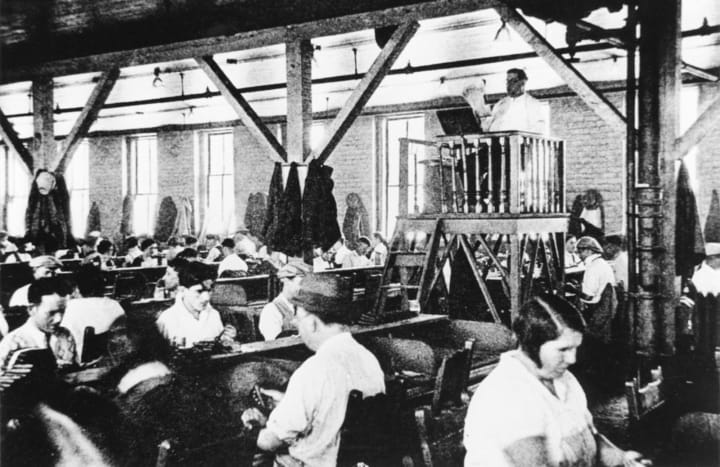
No, not Hannibal Lector. A lector would come to factories during the height of the assembly line to read books to those working long hours. This old job was deemed necessary, as factory workers tended to have very low morale, and were known to snap and lose their minds repeating the same tedious task over and over again.
However, lectors were deemed an easy thing to cut when budgets were being tightened, so often were the first to be let go. Eventually, so many lectors were fired from factories that the job no longer even existed anymore.
Ice Cutters

You ever watch Frozen? No, not the 2010 horror film, but the Disney film. Yes, the one with songs you had maybe only just now gotten out of your head, but this article just shoved right back in. Remember how Sven, the main love interest who isn't a Game of Thrones reject, sells ice for a living?
Well, that used to be a real job.
Before the days of the refrigerator, this old job sent sturdy men out to the icy tundra with hacksaws and sleds to collect ice from lakes and glaciers. Then, you would have to hope that ice didn't melt as you dragged it across the landscape to your final destination.
Obviously, the refrigerator made this occupation obsolete.
Airplane Listeners
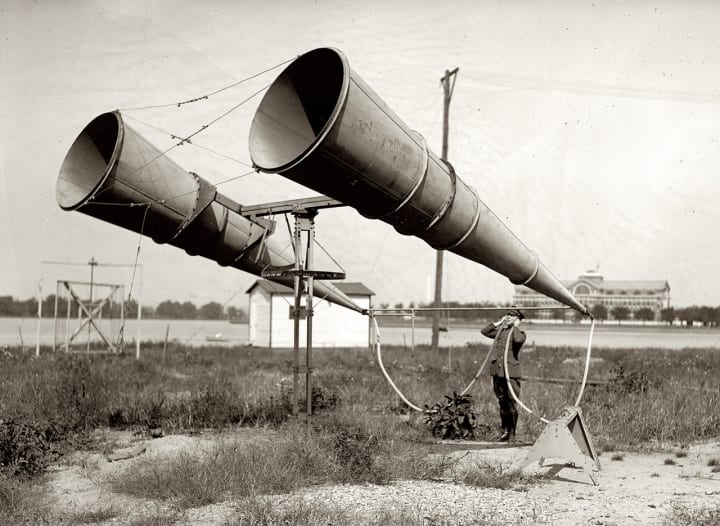
There was a weird stage during WWI where radar did not exist. Radar was invented much later after an experimental death ray turned out to be very inefficient at burning people alive (read more about that here). But WWI was the first war where dog fighting became a thing, so how do you find plans without radar?
By listening. Really, really hard.
This inconvenient job required people, usually soldiers, to place huge funnels over each air, trying to listening to where the planes were coming. For obvious reasons, this led to the infamous dog fights of WWI, where planes would chase after one another over short distances because there was no way to hit a target from far away.
After this old job became no more, the soldiers forced to listen to airplanes got employed for far more useful work.
The Milkman

Though milkmen no longer exists, everyone knows about them. Again, a classic short-hand in film and television for the time period, milkmen were employed in the years prior to refrigeration.
Without refrigerators, milk would spoil in a day. Therefore, new milk had to be delivered to every home, for, after all, milk was seen as an incredibly important drink to help sturdy bones (this was before studies showed that milk wasn't exactly the healthiest drink to consume all the time).
And no, the milkman did not ring twice.
Human Alarm Clocks
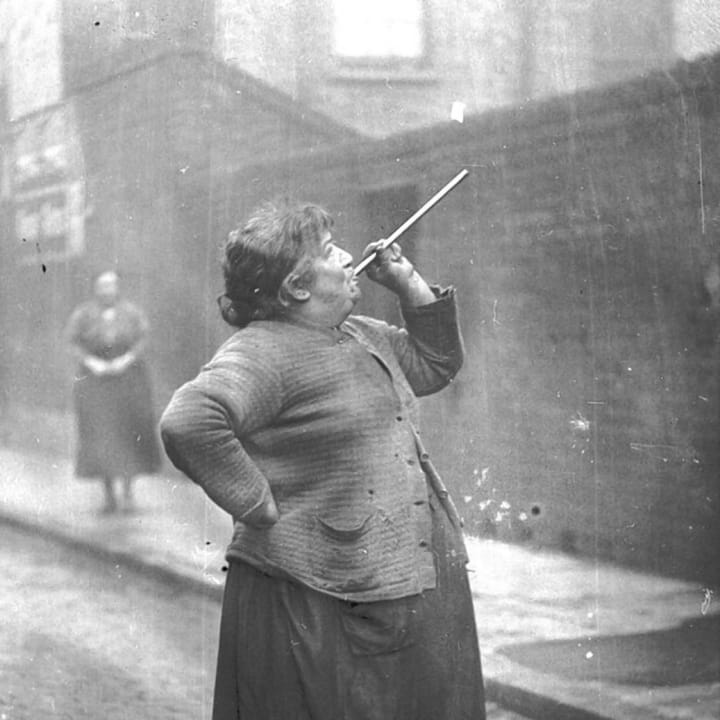
Before the advent of the alarm clock, people had trouble waking up. With so much soot gathered on their windows, even natural sunlight wouldn't be able to reach them. So how was someone supposed to wake up back in those days?
Why, the knocker-uppers, of course.
Knocker-uppers, an old job that I'm grateful no longer exists, would go around either ringing a bell or slapping sticks against windows to wake people up. This relatively annoying employee would operate under the assumption that every human being wanted to wake up at 6 AM in the morning, and approached each house with that same, relentless call.
And no, there is no snooze button with these human alarm clocks... unless, of course, you are holding a musket.
Switchboard Operators
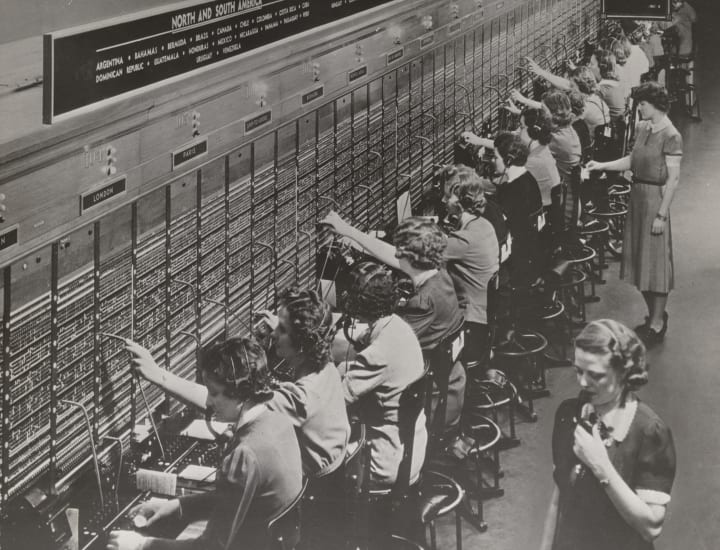
This is another well-known old job, but the switchboard operating occupation is one that can no longer exist. Mainly because there really is no need for them anymore.
Back in the old days of phone lines, calls had to be manually connected by operators standing by. That was back in the day before cellular phones. These took a little while to die out, but die out they did. There is no need for this sort of position in this new age of computerization.
Rat Catchers
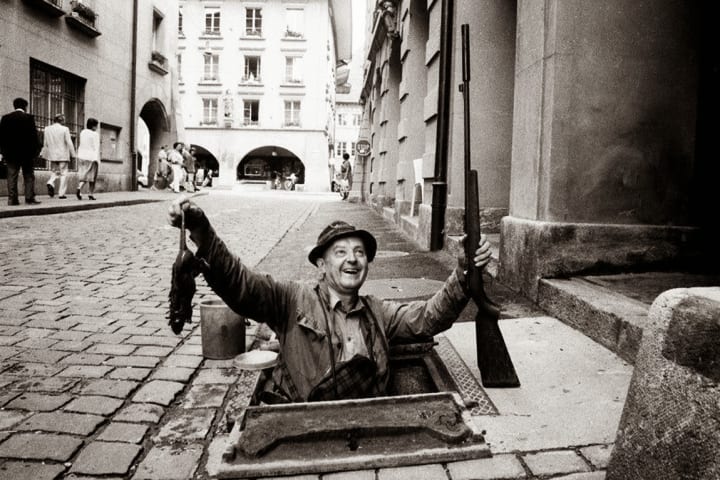
While, yes, exterminators still exist, this is not the same occupation. An exterminator is an all-utility form of pest control. Bugs, vermin, you name it. But exterminators often leave traps or spray, only to come back later to collect the corpses.
A rat catcher is a very different old job that, thankfully, no longer needs to exist. In the 19th Century, Britain faced a rat infestation the likes of which had never been seen before. Because of this, rat catchers had to be formed, who would go into the dirtiest parts of the city in order to snatch up and kill the mice.
Bonus points? The Yorkshire Terrier (the cutest of all dogs) was bred for the express purpose to hunt down rats alongside rat catchers. Like German Shepherds... only small and cuddly.
Bowling Alley Pinsetter

You ever go bowling, and wonder how, back in the old days before machines, they ever reset the pins? You probably just assumed, like how you and your friends would playing old games of bowling at home, that someone would just do it by hand.
Correct!
Did you also know that this was a job?
Obviously, this job was eliminated once machines came around to do this sort of manual labor, but just imagine: being paid to just pick up pins. Sounds... fulfilling?
Log Drivers

Before the railroads or vehicles really revolutionized the way that lumber was transported across the country. Before trains, logs were cut down, and steered down rivers, floating atop in rows and rows of logs. The ones who steered them were known as log drivers.
Obviously, this career was dangerous. As any of the logs could drift out beneath you, you could easily slip in, and find yourself trapped under rows of heavy logs. Any number of mosquitos flying around boggy water could give you an incurable disease. And even just the sunburn!
Thankfully, the moment a safer alternative came about, log driving quickly faded.
Body Snatchers

Okay, let's get grim for a second here. In the early days of medical science, bodies and cadavers were hard to come by. While today tons of people donate their bodies to science, the supply in the 19th Century was far more limited. So students in training and professors at university often turned to the seedy underworld, where, under a rotting thatch roof and between crumbling walls, they could enlist the help of a Body Snatcher.
Their mission? Grave robbing, and selling the bodies to colleges.
Was it legal? No. Not at all. Was it incredibly disgusting, lugging maggot-ridden corpses in carriages to the colleges? Yes. Was business booming before people started donating their bodies to science? Yes.
About the Creator
Anthony Gramuglia
Obsessive writer fueled by espresso and drive. Into speculative fiction, old books, and long walks. Follow me at twitter.com/AGramuglia






Comments
There are no comments for this story
Be the first to respond and start the conversation.